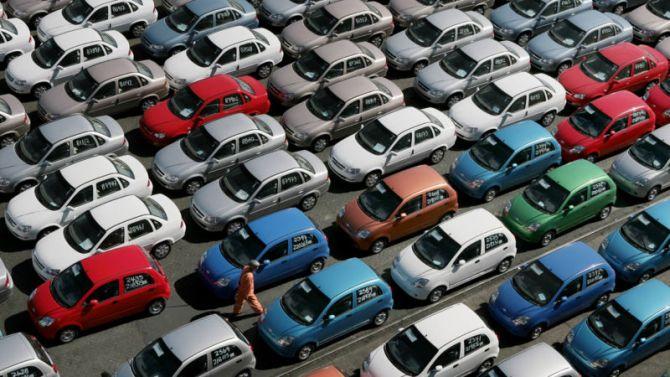A nationwide and compulsory switch to BS-VI is due from April 1, 2020.
Amid increase in input and other costs, companies had decided to hike the price of their vehicles from January 2020.
This is expected to push sales of passenger vehicles by 2 to 4 per cent in December.

After a tough environment for 15 months, the automobile industry now faces the final set of hurdles in the transition to BS-VI emission rules, say analysts. ‘Business as usual’ is likely, they expect, from the second quarter (July-September) of the coming financial year.
A nationwide and compulsory switch to BS-VI is due from April 1, 2020.
Amid increase in input and other costs, companies had decided to hike the price of their vehicles from January 2020.
This is expected to push sales of passenger vehicles by 2 to 4 per cent in December; reportedly, bookings are in that range.
Discounts and like other schemes, as high as Rs 1-1.5 lakh for volume segments, are aiding this.
This has started reflecting in inventory levels at dealers, down since companies have cutting output.
Inventory levels for passenger cars was 30-35 days in January 2019; this had dropped to 25-30 days in October.
That for two-wheelers dropped to 35-40 days, from 50-60 days.
However, in the commercial vehicle segment, inventory continues at the same level, according to the Federation of Automobile Dealers Associations.
Shashank Srivastava, executive director (marketing & sales) at Maruti Suzuki, says of the expected rise in sales: “It is very difficult to quantify the magnitude and place a number.
"Some customers might also have changed their mind and pushed their decision to December, from November.
"We are cautiously optimistic on positive demand.”
He says the discounts being offered are an all-time high and not sustainable.
“So, we want to tell our customers that the best time to buy a car is now.”
Motilal Oswal Financial Services says two-wheelers would face the highest cost inflation, of 10-15 per cent, due to the BS-VI transition.
The price change for mainstream two-wheelers, of less than 125cc, would be 20-25 per cent.
The impact on petrol-driven passenger vehicles is expected to be a rise of 2 to 3 per cent; on diesel ones, from 8 to 12 per cent.
For light commercial vehicles, the cost inflation is expected to be 15-20 per cent; for medium and heavy ones, 10 to 13 per cent.
Photograph: Reuters












 © 2025
© 2025